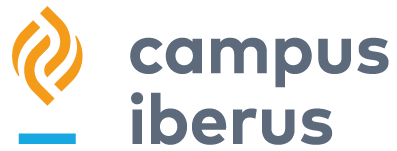HEALTHYORG
HEALTHY ORGANISATIONS. TECHNOLOGY AND SOCIAL INNOVATION TO PROMOTE WORKERS' HEALTH AND SDG'S ACHIEVEMENT
Description:
Information and communication technologies (ICT) have been rapidly implemented in the society. From a business angle, technologies have become one of the strategic variables to evaluate. They have risen new ways of working by changing the concept of time and space. They have managed to make teamwork more productive by efficiently managing available resources. Since the COVID-19, new routines and ways of working making use of ICT have been accelerated, as for instance telecommuting. The impact of that is highly relevant on organizational and psychosocial aspects and its relationship with occupational health. Companies with strategic plans in Corporate Social Responsibility (CSR) have implemented support measures for different stakeholders. These measures directly or indirectly favor the achievement of the SDGs (Sustainable Development Goals), and especially SDG 3 and SDG 8, in addition to SDG 10, SDG 9 and SDG 17. The response of the industry to look for ethical, solidarity and collaborative solutions to alleviate the negative effects of the pandemic has been very significant.
Still the concept of a healthy company or organization, as a social innovation that prioritizes the promotion of workers’ health, remains novel, and most companies still need to reorient themselves towards a new way of management and CSR.
Our research cluster intends to deepen the knowledge on healthy organizations as a social innovation at the national and international level. Healthy companies influence the promotion of workers’ health and technology, as valuable assets to overcome crises. Crises must be faced as an opportunity to be better, more resilient, better prepared and more agile to recover from future threats. People and their health must be placed at the center of the organization. The companies that integrate the healthy company project into their global strategic plan increase the staff’s commitment to the organization, which results in a better productivity. Only profound changes help to consolidate a culture and corporate leadership that lead to more ethical and human economic and production models.
Members:
University
- Isabel Saz Gil (PI; University of Zaragoza)
- Ana Gil-Lacruz_University of Zaragoza
- Marta Gil-Lacruz_University of Zaragoza
- Andrea Yadira Vega Tinoco_University of Zaragoza
- Ignacio Bretos Fernández_University of Zaragoza
- Millán Díaz Foncea_University of Zaragoza
- María Reyes Lorente Antoñanzas_University of La Rioja
- Esther Raya Díez_University of La Rioja
Other entities:
- Anne-Laure Gatignon Turnau_Université Paul Sabatier, Toulouse III
- María Carmen Mombiela Guillén_Instituto Aragónes de Seguridad y Salud Laboral (ISSLA)
- Belén Serrano Valenzuela_Dirección General Función Pública y Calidad Servicios. Gobierno Aragón
- Susana Iris Rueda Sánchez_Dirección General Función Pública y Calidad Servicios. Gobierno Aragón
